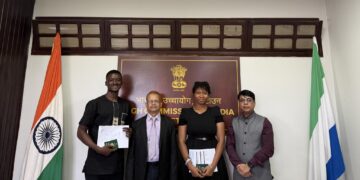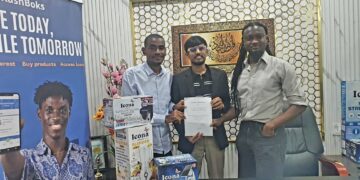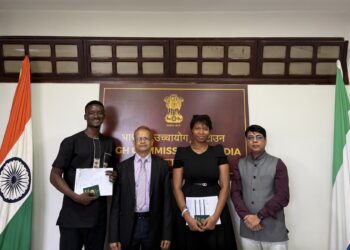By Alieu Amara Suwu
In 2022, UN News reported that, globally, nearly one-in-three women have experienced violence, with crises driving the numbers even higher.
Sexual and gender-based violence (SGBV), the most pervasive violation of human rights, is neither natural nor inevitable and must be prevented. In the cause of this, the Legal Access through Women Yearning for Equality Rights and Social Justice (L.A.W.Y.E.R.S.), on Tuesday, 29 October 2024, converged and elaborately trained law students and legal practitioners on the concepts of gender, the Gender Equality and Women’s Empowerment Act (GEWE Act), and sexual and gender-based violence.
This training marks an activism to combat violence against women and girls and accelerate gender equality while showing that this violence against women and girls is preventable and that comprehensive strategies are needed to tackle root causes, transform harmful social norms, provide services for survivors, and end impunity.
Florence Taylor-Younge, Vice President of L.A.W.Y.E.R.S., speaking to an Independent Observer, said the training is in SGBV and the GEWE Act. She said the training caters for different students at various universities to teach them about the aspects of the gender laws with regards to specific sections that they (laws) deal with.
She explained that since L.A.W.Y.E.R.S. was created in 1997, they have trained magistrates, legal practitioners, and stakeholders but not students. So they had thought it fit that these students, not only law school students but also students at the University of Makeni (UNIMAK) and Fourah Bay College (FBC), come and learn, and maybe unlearn some certain things of the laws, so by the end day they can push the advocacy forward.
Reason for incorporation of male students: she said there is now what is known as “he for she” that suggests an equitable society. Therefore, even though the training, as one would say it, is more specific to women, incorporating the male students is an advantage, for they are future legal practitioners who will defend these rights. “It is about letting them know that they have a role to play; hence, their knowledge should be equipped with the laws related to gender issues,” she spoke.
Joy Gabbidon, Deputy Public Relations Officer of L.A.W.Y.A.R.S., in her perspective on the topic, Sexual and Gender Based Violence, asserted that SGBV is one of the greatest human challenges today and that the issue is more affecting girls than boys.
Gabbidon, while simplifying the concept between sex and gender, however noted that SGBV is not only limited to female survivors. She preferred calling a person of SGBV a survivor to victim, for victim is a vulnerable, manipulated, weak, and powerless person.
Providing detailed information on SGBV, she said the effect of this violence could lead to lifetime distress, end all future plans, disability, and even death.
On it, psychosocial consequences, she said, could end up in hopelessness, low cognitive consciousness, trauma, hypervigilance, behavioral change patterns, substance abuse, post-rheumatism, and stress disorder.
Moreover, she talked about the social consequences (cultural context), which are stigmatization, change within a survivor, and about one’s life entirely.
On a cautionary note, she advised that, in all of these, confidentiality is key, saying that breach of confidence would lead to severe social stigma, and thus advised that “never let someone regret sharing his/her story with you.”.
Yeawoma Gbirie, Treasurer for L.A.Y.W.E.R.S., described the enactment of the GEWE Act as a groundbreaking one because it has catered for a lot of potentials/rights for women: political rights, educational and maternity rights, equal payment grade (as men) at work places, increased access to finance (microfinance), and defense for women. Not limited to these, she also talked about the CEDAW, the Benji Declaration, and others; explained what these treaties entail and how relatively they have provided safe space for women in the world.
On a point other, she reiterated that the Act does not say 30% for women but at least 30% for women.
Reglotte Samiria Decker discussed with participants, among others, about gender and sex, gender stereotyping, and gender responsiveness. In perspective, she put it that gender stereotyping is the negative connotation attached to roles; false beliefs or ideas that are ascribed to the roles of men/women.
Mohammed Jalloh, Program Coordinator for The Carter Center, says they are partnering with the government to popularize the GEWE Act. He said the time to raise awareness is now rather than later.
Participants made various contributions to various presentations and raised concern on the use of “may” rather than “shall” in the Act with regards to the 30% quota.

























